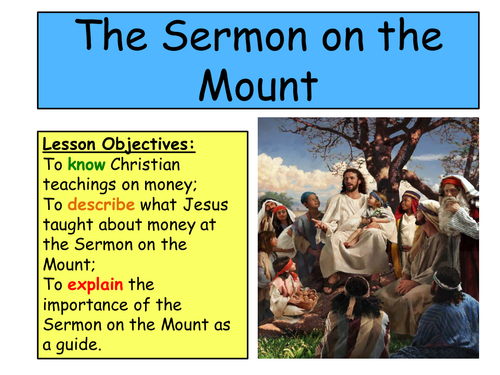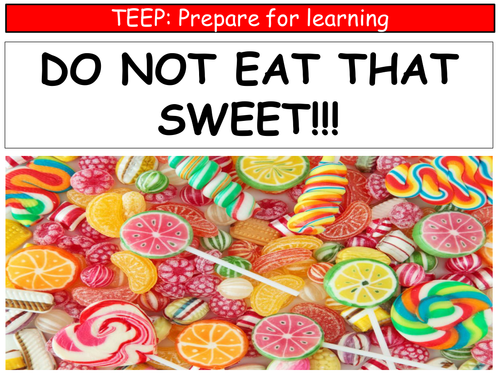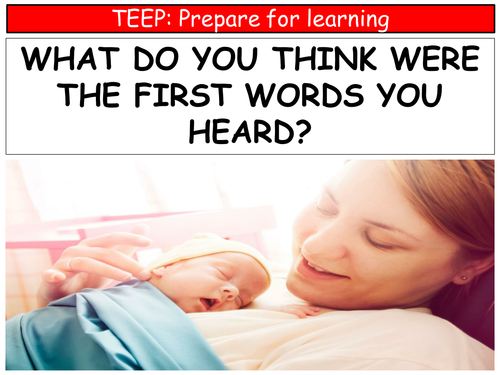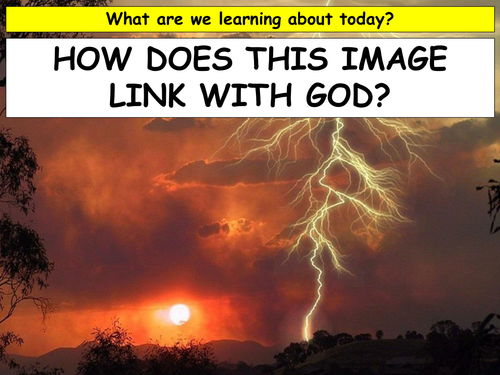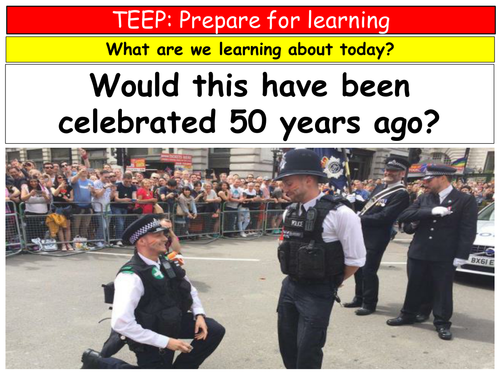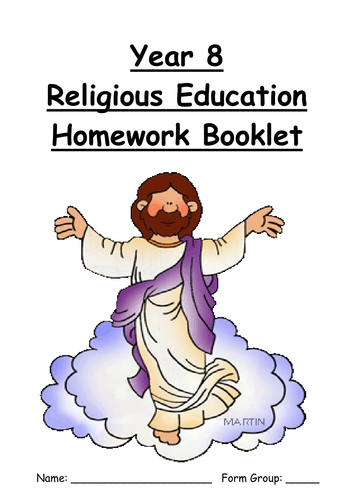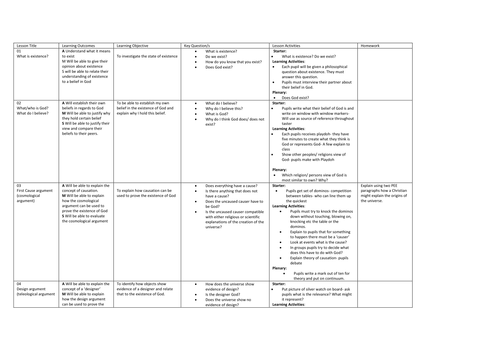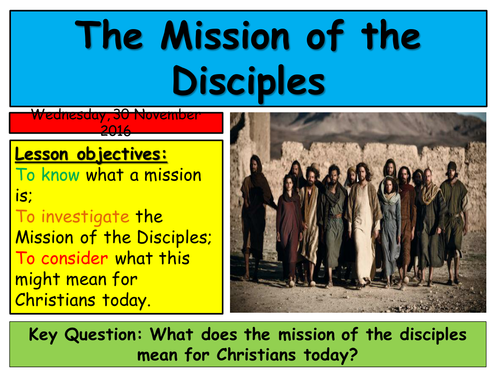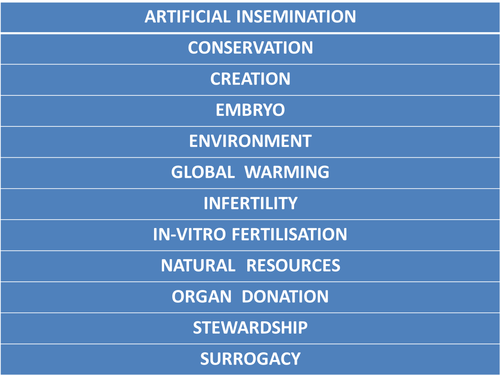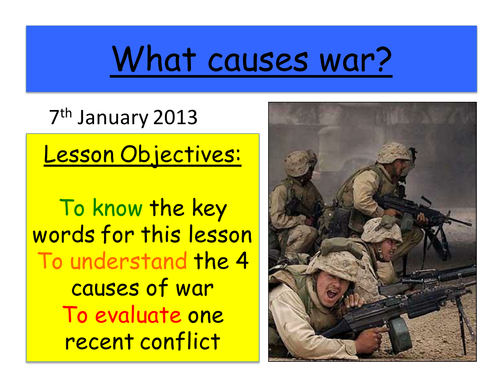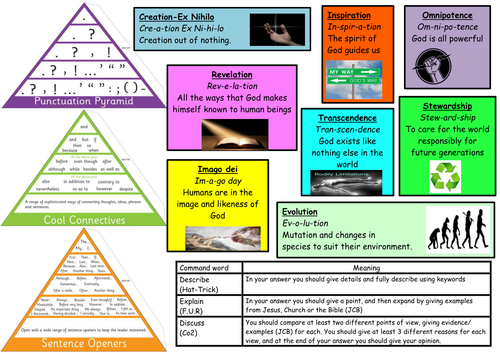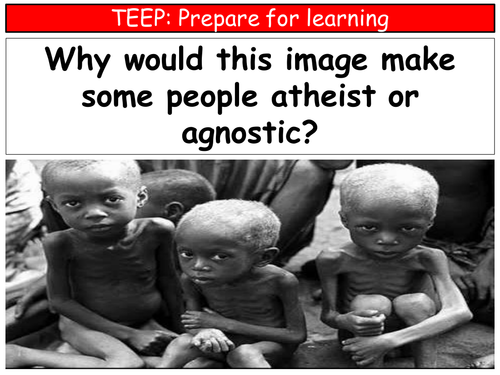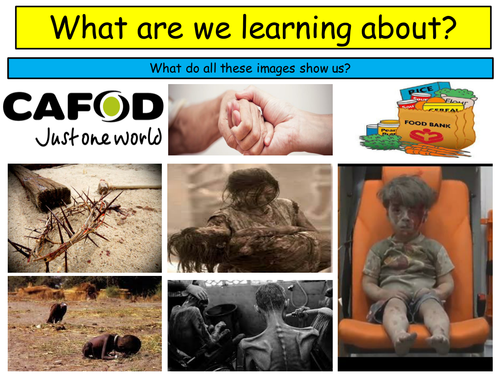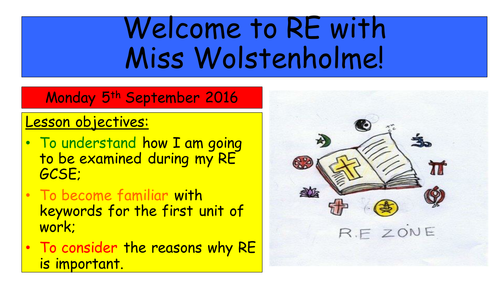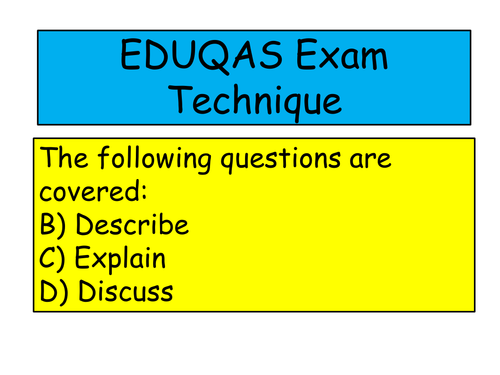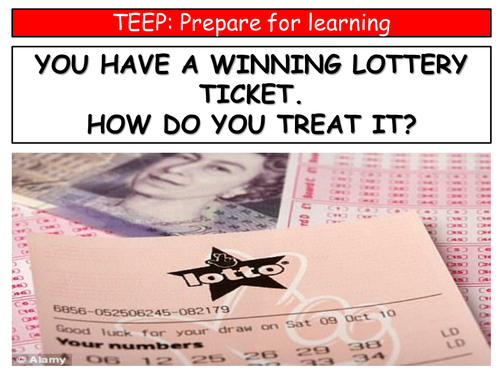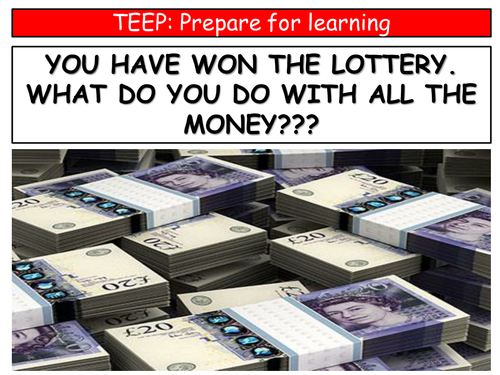
61Uploads
22k+Views
5k+Downloads
Religious education

KS3 Charity- Christian Teachings. The Sermon on the Mount
Lesson Objectives:
To know Christian teachings on money;
To describe what Jesus taught about money at the Sermon on the Mount;
To explain the importance of the Sermon on the Mount as a guide.

KS3 Islam - Ramadan
To know what Ramadan is;
To explore what Muslim people do during Ramadan;
To explain why Ramadan and Eid are important.

KS3 Islam- Birth
To state how Muslims welcome a baby into the world;
To describe why this is important.

2016 RE EDUQAS GCSE. Route B, Theme 1. Catholic beliefs about Revelation
This lesson looks at the two different types of revelation, and encourages pupils to find examples of theses. There are different tasks including a code-breaker and a Kagan style starter. The lesson ends with a C) style exam question.

Christian attitides to Homosexulaity
This lesson focuses on different Christian attitudes towards homosexuality. This lesson is based on EDEXCEL Unit 3.3.
The lesson has different learning styles and tasks, including group work, exam questions and peer assessment.

KS3 Homework Booklet: covenant and Christmas
This is a half term homework booklet is designed around a SOW on Old Testament Covenants and Christmas.
There is a Learning programme that specifies what the pupils will be learning about in lesson, and how this links to their homework.
Each task has success criteria, and space to complete it.
It was created on Word so is easily edited to suit your own SOW

KS3 Homework Booklet: Dicipleship
This is a half term homework booklet is designed around a SOW on discipleship.
There is a Learning programme that specifies what the pupils will be learning about in lesson, and how this links to their homework.
Each task has success criteria, and space to complete it.
It was created on Word so is easily edited to suit your own SOW.

Faith and Science Scheme of Work
Scheme of work looking at the relationship between faith and science. This is aimed at KS3 but can be used for older pupils.
The Scheme of work includes suggested lesson ideas, objectives, outcomes and a weekly homework task.
There is a learning plan attached for pupil/parent use with suggested homework.
A levelled assessment with a section for teacher and pupil feedback.

Pentecost
To describe the events of Pentecost;
To understand the symbolism seen during Pentecost;
To explain the significance of this event.
The starter to this lesson pupils must look at an image and come up with 3 ideas about how it can link to Pentecost.
Pupils are then working in pairs to search for the passage in the Bible and summarise the Pentecost into 5 bullet points. There is a video clip to accompany this (hyperlinked image)
Pupils are then discussing the symbolism of Pentecost (short task) and finally the importance. This is a short activity and a video clip.
The final tasks pupils are to complete an exam style question. this is Heavily structured with guidance and to peer/self assess their work.

KS3 Sending out the 12 Disciples
This lesson is aimed at KS3 but could be adapted for older pupils. The aim of the lesson is to think about what the mission of the disciples was, and what impact that has on Christians today.
The lesson includes a variety of activities including an investigation task and an exam style question as well as a postcard (from their mission) as a plenary activity.

EDEXCEL Unit 8.2 Global Warming
To investigate global warming.
To explore the causes of global warming
To consider possible solutions to global warming
Variety of different tasks looking at the various causes of global warming. Ends with exam questions

EDEXCEL Unit 8.3 Causes of war
To know the key words for this lesson
To understand the 4 causes of war
To evaluate one recent conflict
Pupils will be focusing on the four different types of war, and then use what they have learnt to analyse a recent conflict in the form of a case study. A variety of learning styles covered

EDUQAS Route B, Theme 1.1 & 1.2 Keyword Mat (Origin & Meaning, Good & Evil)
This is a resource I have used to assist my lower ability pupils with keywords. Each key word has an image, simplified definition , and phonetic spelling.
in addition to this there are punctuation, connective and opener pyramids. I have included the command words for each question (describe, explain, discuss) and the meaning of each. I have also included 'Hat-Trick', 'FUR' and 'Co2' as this is something I have done with my pupils to assist with exam structure.
These work best when printed in A3 and colour.
I have laminated these and allow pupils to circle the keywords that they aim to use in the questions with a dry wipe pen which works well with my classes.

EDUQAS Route B, Theme 1.2 Good and Evil, Catholic responses to Evil and suffering
There is an entry task for pupils to complete as they enter.
Objectives are shared with the pupils
Starter: A video clip (The image is hyperlinked) pupils must come up with 3 reasons why people are atheist or agnostic.
The problem of evil is shared with pupils and then they must complete an 'investigation task' around the room with various catholic responses.
This is fed back to the whole class where pupils are to analyse with responses they believe are most and least convincing and a reason why.
Pupils are to answer a C question: Explain how Catholics respond to the problem of evil (8)
This is peer assessed with suggested WWW's & EBI's provided.
A short plenary.
**THIS LESSON HAS BEEN PLANNED USING THE TEEP (Teacher Effectiveness Programme) CYCLE AND SO THERE IS REFERENCE TO EACH ASPECT OF THAT ON THE SLIDES

EDUQAS Route B, Theme 1.2 Good and Evil The meaning of Suffering to Roman Catholics
This lesson I have looked at the meaning of suffering and focused on the Omni-benevolence of God. The lesson starts with an entry task, shared objectives and a Pictionary keyword starter task.
The lesson is focused on a D style question “God cannot be omnibenevolent because we have suffering in our world” (15). Pupils must place themselves on an opinion line relating to this question.
Pupils must take part in a collaborative learning task where they are expected to produce a presentation based on what they have learnt. They must make reference to the teaching of the Bible, Church and religious leaders.
They exam question is reviewed and answered (a basic structure is provided)
Pupils then review the opinion line again to assess if their opinion has changed.

EDUQAS Religious Education Route B,Theme 1.1 Introduction to the course
A lesson looking at the expectations and content of the GCSE course.

EDUQAS 2016 Religous Education exam technique guide
These slides to assist pupils in setting out their exam questions. I have made these to suit my low ability classes and help them to organise their answers. These can be used as part of your lessons, as a stand alone lesson, displays or revision.

EDUQAS GCSE 2016 Origins and Meaning: Catholic and non-religious Views of creation
Taken from the new RE GSCE Spec EDUQAS, Route B, Theme 1: Origins and Meanings.
The lesson focuses on the Catholic view of creation (Genesis 1) and the Non-religious view (The Big bang).
There is a variety of activities ranging from small group work, video clips and an exam question with a mark scheme for peer assessment.

KS3 Islam- The Qur'an
Lesson Objective:
To know what the Qur’an is;
To describe the main features of the Qur’an;
To explain why the Qur’an is important to Muslims.

KS3 Charity- The SVP
Lesson Objectives:
To understand why the SVP was established;
To describe the work of the SVP;
To explain why the SVP are important.

